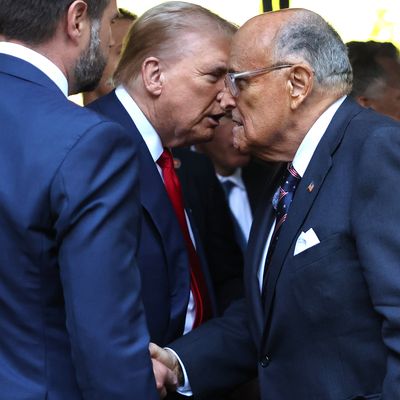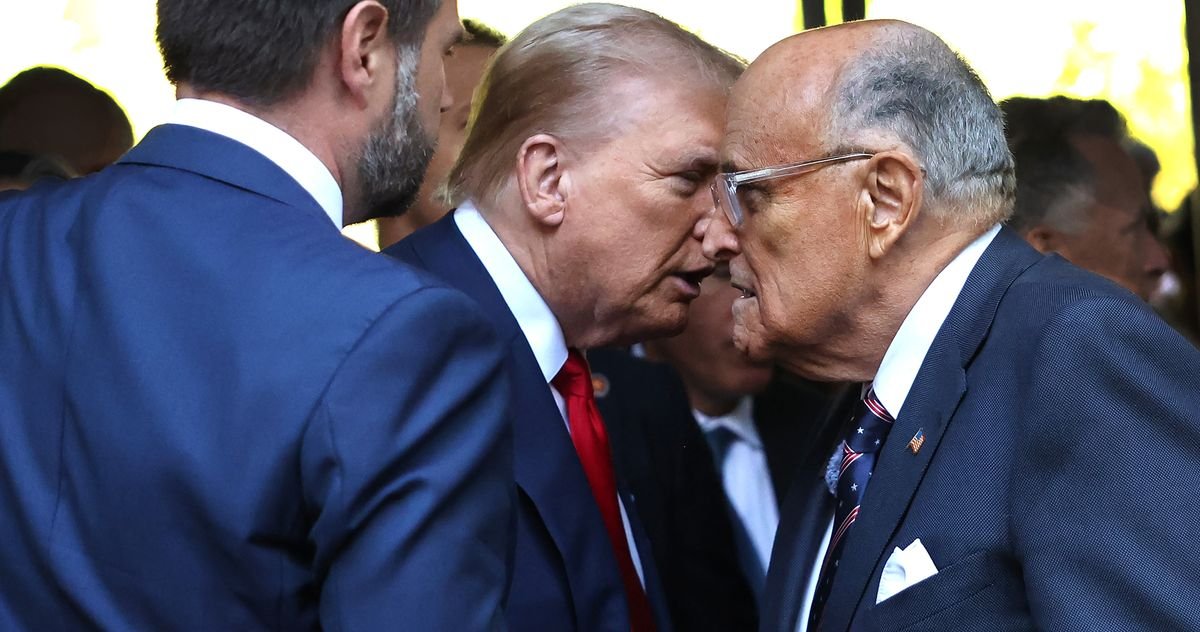
Photo: Michael M. Santiago/Getty Images
Is Donald Trump about to make all of Rudy Giuliani’s legal troubles go away? That’s the impression you might get from the former presidential lawyer, who has been living life like he just has to make it to Trump’s second inauguration on January 20, 2025.
In October, Giuliani was ordered to turn over almost everything he owns — from his Upper East Side apartment to his 1980 Mercedes — in order to pay $148 million in damages for defaming Georgia election workers Ruby Freeman and Shaye Moss. But since then, Giuliani has engaged in wild courtroom behavior and missed multiple deadlines to surrender his assets. Giuliani even asked to delay the trial over whether he must turn over his Florida home and his World Series rings so he can attend Trump’s inauguration festivities (the judge refused, saying the court doesn’t revolve around Giuliani’s “social calendar”).
So what’s really going on here? This is what we know.
No. The defamation case brought by Freeman and Moss is a civil suit. The president can grant pardons only for federal criminal offenses.
Article II, Section 2, of the Constitution states:
The President shall be Commander in Chief of the Army and Navy of the United States, and of the Militia of the several States, when called into the actual Service of the United States; he may require the Opinion, in writing, of the principal Officer in each of the executive Departments, upon any Subject relating to the Duties of their respective Offices, and he shall have Power to grant Reprieves and Pardons for Offences against the United States, except in Cases of Impeachment.
As the government-run site Constitution Annotated explains, the pardon power does not apply in federal civil suits or in any state cases:
Despite the breadth of the President’s authority under the Pardon Clause, the Constitution’s text provides for at least two limits on the power: first, clemency may only be granted for Offenses against the United States, meaning that state criminal offenses and federal or state civil claims are not covered. Second, the President’s clemency authority cannot be used in Cases of impeachment.
No. There are so many pending lawsuits involving Giuliani that it has become hard to keep track (at one point, there were nearly a dozen). But the former New York mayor has been criminally indicted in only two states, Georgia and Arizona. In both cases, Giuliani was charged along with other Trump allies for his allegedly unlawful efforts to steal the 2020 election and has pleaded not guilty.
With Donald Trump returning to the White House, both of those cases may be delayed indefinitely (though Arizona attorney general Kris Mayes said she has “no intention” of dropping her state’s case). But even if they do proceed, Trump’s pardon power is irrelevant since it doesn’t cover state criminal offenses.
Maybe? The Constitution clearly states that the presidential pardon power applies only to federal criminal offenses. Giuliani has yet to be indicted on any federal criminal charges.
A pardon may not be the motivation for Giuliani’s alleged delay tactics, though; perhaps he just thinks he’ll get more favorable treatment in court with his pal Trump back in the White House.
It’s also possible Giuliani’s chaotic behavior has nothing to do with Trump. He recently admitted to the judge in his sexual-assault case that he’s “confused” about whether he’s even representing himself. There may not be much method in Giuliani’s legal madness.

